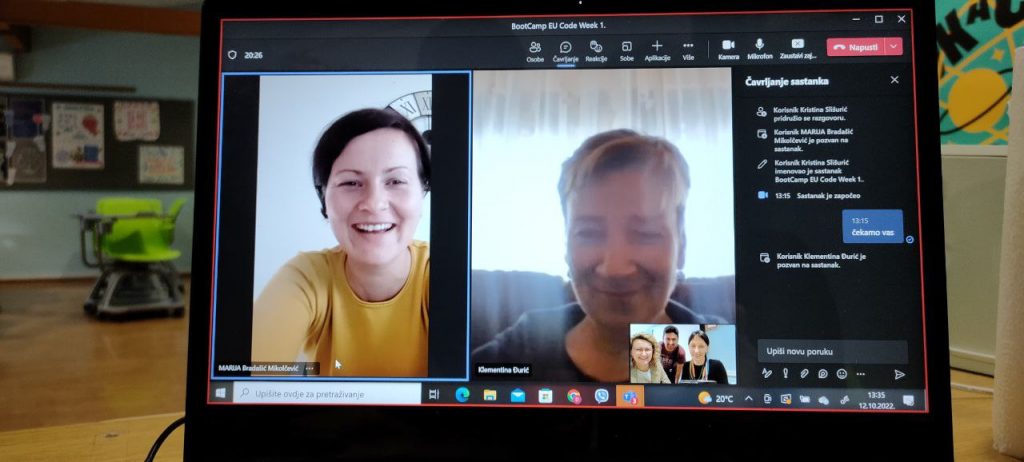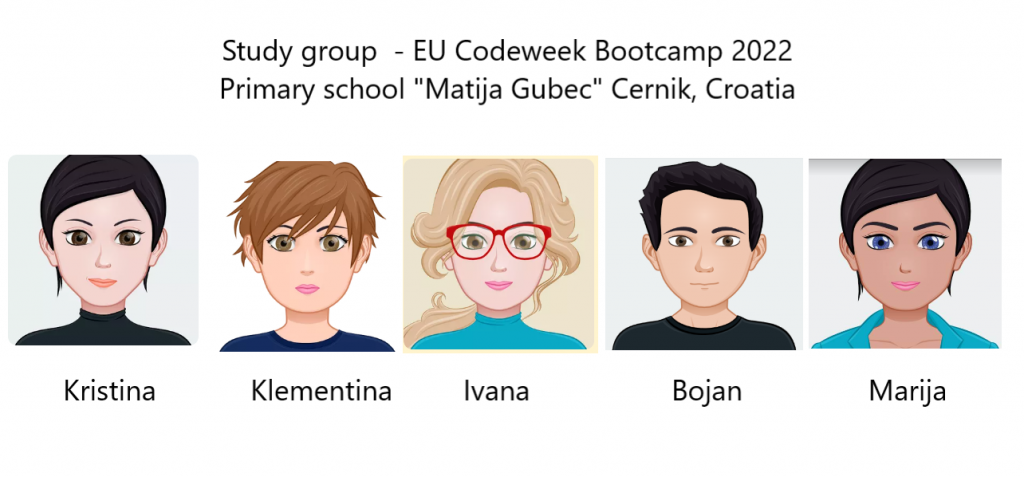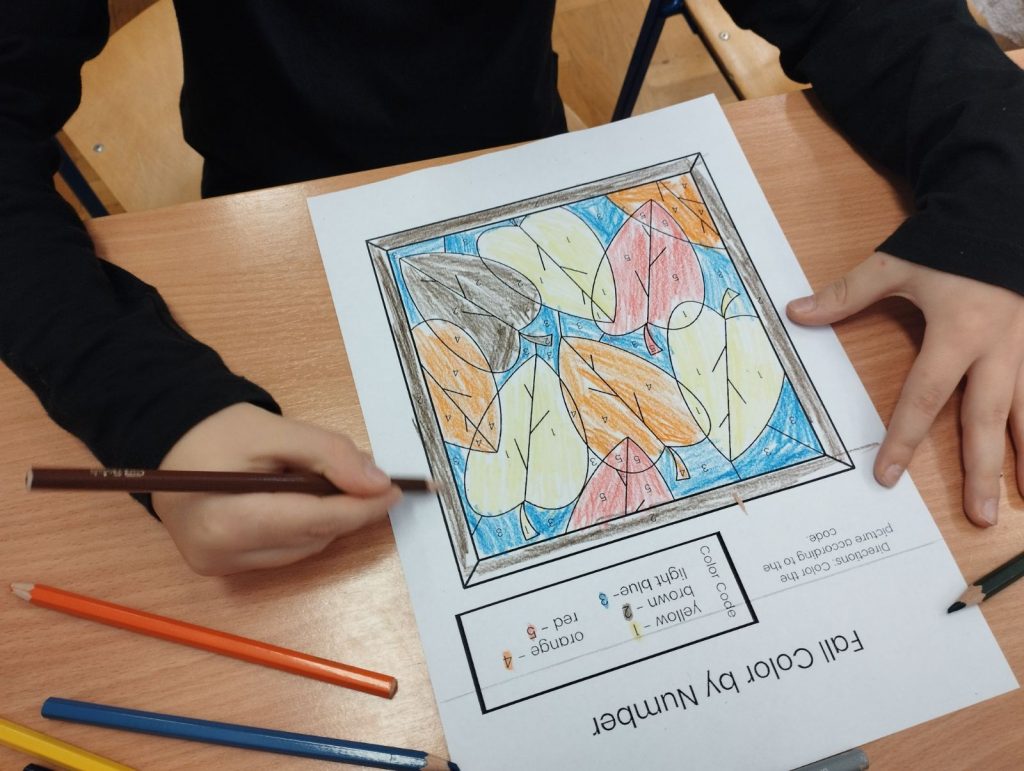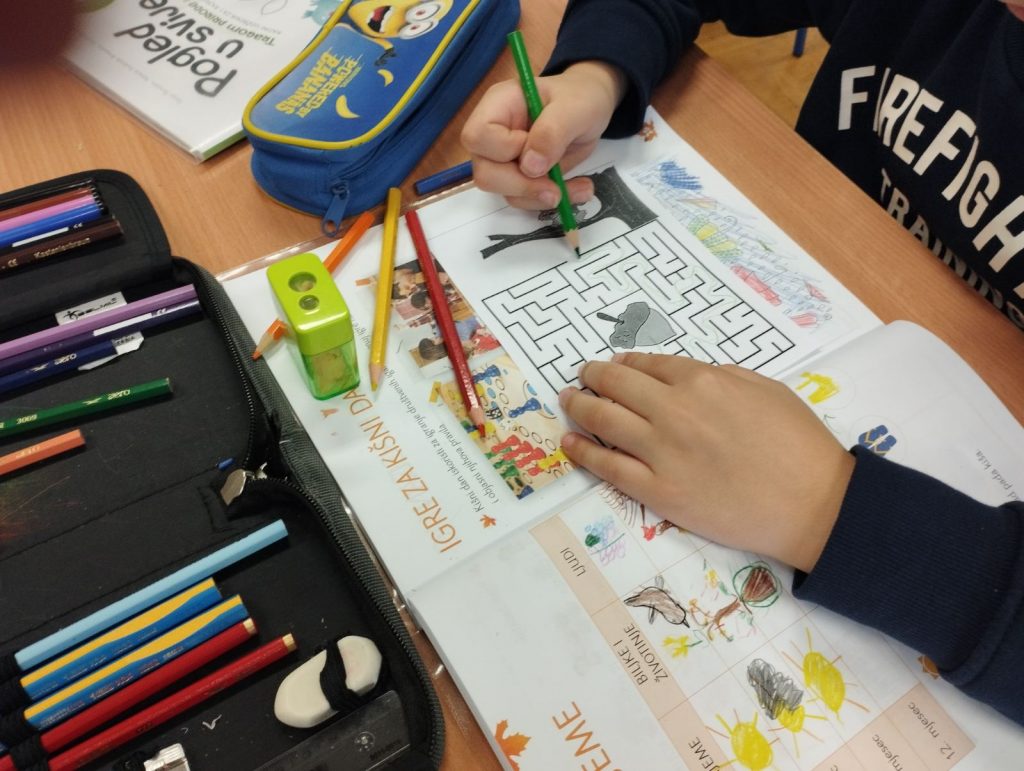Code Week Bootcamp MOOC Study Groups – School based learning community in Primary school Matija Gubec
22/11/22
By Kristina Slišurić, Code Week Study Group Leader in Cernik, Croatia
The Study group in Primary school “Matija Gubec“ Cernik has five members, including myself: we are a school-based community of peers, who work together to support and motivate one another throughout the MOOC EU Code Week Bootcamp 2022. At the end of MOOC we brainstormed new ideas and came up with new practices for our school, basing on all we learnt during the MOOC. Amongst the members of our study group, three taught Computer Science and the other two were primary teachers – hence they were teaching all subjects. In this article I will describe how we worked together on MOOC content.
How it all started?
After receiving the approval and support of the school headmaster, I introduced the EU Code Week initiative to my colleagues, explaining what it was about and how it worked. I used this document to give them better context and show the benefits of study groups and how we will collaborate.
How we organize our meetings?
I organised our meetings in a hybrid format: some members were live in the classrooms in our school and some others were at their homes and connected via MS Teams, tool that we also used to write our ideas, exchange our thoughts and share materials and resources during the whole duration of the MOOC. In the first introductory meeting we defined a scope of our work, and I introduced the platform and how it worked, clarifying to the members what would be their final assignment and describing how the peer-to-peer activity feature.
Here is a picture of our first meeting; our faces can tell you our reactions and motivation. The best advice I gave to my study group members in our first meeting was: just have fun together!

We had weekly meetings – once per week – during which we discussed the topics of the open module as well as activities related to it. We did some activities together and we commented on those other teachers organised at home. However, we decided to dedicate more time to those activities that we found applicable in our school.
To make it funnier we also created our avatars. Here we are.

Our last meeting was the most productive: all teachers brought the teaching scenarios they had prepared for the Final Assignment, and together we analysed each and one of them, reviewing whether it met all the requirements and, in case it didn’t, giving our suggestions for improvement. We also helped teachers who struggled more with the English language.
After commenting on the tasks, each teacher submitted his/her work and began to evaluate the received feedback on it. We previously studied this part of the course in detail so that our feedback would be useful to teachers. Soon after that, teachers were also able to see their certificate, and everyone was very happy and proud.
The best part that followed, was that the teachers registered their coding events on the Event map and had fun pinning activities!
What we did:
At the end of the MOOC each team member created a final assignment that included a teaching scenario including coding activities that we learned during the MOOC.
Here there are the activities from my Study Group, some of which have been already implemented with pupils.
- Coding autumn
- Apple day
- Coding on Geoboard
- Spot computer parts
- Morse code with Micro:bit



What are the benefits of working in Study Groups?
Study groups are great for improving teacher learning with MOOCs. Some teachers said that they would have given up before the end of the MOOC, had they not been provided with support in the form of Study Group. Working together on the MOOC content, was very motivating and inspirational: we all found many activities that were based on coding, like Dance Party, Thinkering – paper robots, and we could implement many of them in our classes. My colleagues were very happy to join and learn from each other and also to share their own ideas, practices. They saw this as a great opportunity!
Study groups are great for teachers who had difficulties with English language, too, but they also address those who want to learn something new, but have a lack of digital competence: members of my study group were motivated to actively participate in their online professional development, because they knew they would receive support every step of the way. Also, they created and implemented various coding activities in their classroom and with that, the knowledge and skills we all gained in this MOOC we put into practice in our local context.
The best moment of the course was when we studied different unplugged coding activities and computational thinking and one of the teachers said: “well, we already know all of that, we just didn’t know that it was coding!”
Our plans in future
In our school we plan to organise workshops, so that every pupil will be able to participate to the amazing Code Week initiative. After we will have carried out all activities, we will then introduce them to the rest of the teachers.


